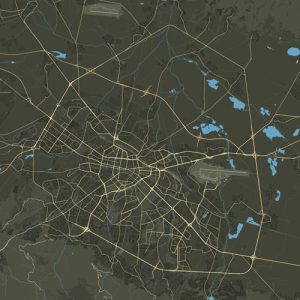The national liberation movement against Ottoman rule in Bulgaria reached a significant milestone with the April Uprising of 1876, a heroic act that ignited the Russo-Turkish War of Liberation (1877-1878). This war ultimately led to the establishment of the Principality of Bulgaria. Throughout this period, various revolutionary leaders and organizations played pivotal roles in the struggle for liberation.
Detachments led by figures such as Hadji Dimitar, Stefan Karadzha, Ilio Voivoda, and Captain Petko Voivoda operated in different regions, including Mysia, Macedonia, and Thrace. Vasil Levski, a prominent revolutionary, organized and led the Internal Revolutionary Organization (VRO) and the Bulgarian Revolutionary Central Committee (BRCC) to advance the cause of liberation.
While the April Uprising marked a peak in the liberation movement, efforts to promote educational, cultural, and national revival continued in areas still under Ottoman dominion. In Southern Bulgaria, the Bulgarian Secret Central Revolutionary Committee (BTCRC) eventually united with the Principality in 1885. Meanwhile, the Bulgarian Exarchate, established in 1871, and other peaceful structures, along with the Internal Macedonian-Edrina Revolutionary Organization (VMORO), continued the struggle for liberation in remaining enslaved lands, employing both peaceful and armed resistance tactics.
While the end of the Bulgarian Revival is conventionally marked by the San Stefano Peace Treaty in 1878, which restored the free state of the Bulgarians, this primarily applies to the Principality. However, in the regions still under Ottoman rule, the Revival persisted until 1912. Despite the Congress of Berlin and the Unification in 1885, much of Macedonia and Thrace remained under Turkish control. The Bulgarian national revival continued in these areas until their liberation in 1912 during the Balkan War.
Following the Balkan War, southwestern and southern Bulgarian lands were liberated, but they faced occupation by Serbia and Greece. Additionally, in Odrin Thrace, the Turks conducted ethnic cleansing, resulting in the expulsion of 300,000 Bulgarians. This grim episode put the Bulgarian national development in these regions under severe threat.

